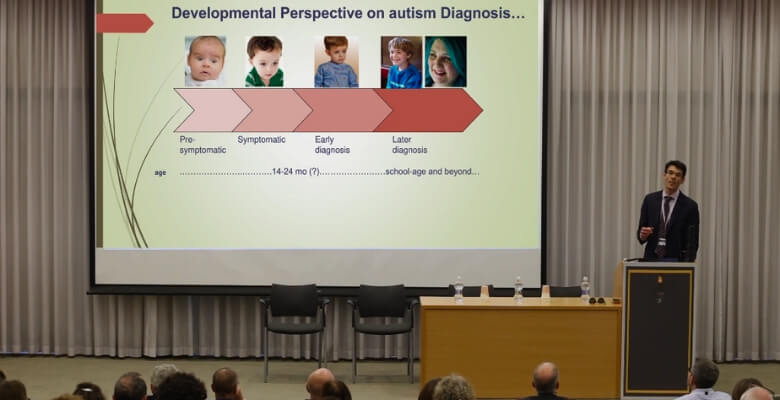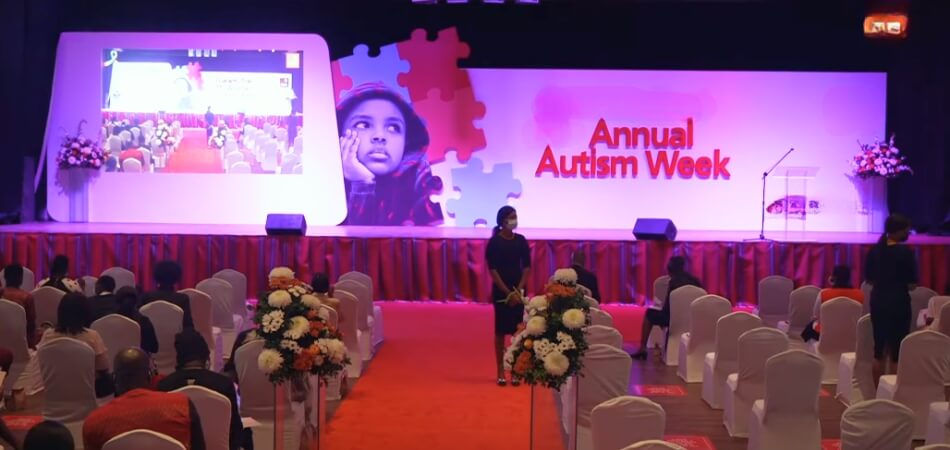Autism conference is an exciting event where advocates, researchers, and caregivers share insights, strategies, and support. The excitement and anticipation of such an event can make you feel overwhelmed, especially if it’s your first time. Don’t worry! Take a look at our tips for preparing for an autism conference.
Be prepared before an autism conference by planning your schedule, researching speakers, and setting goals. Make sure you have the necessary accommodations and materials. Besides that, you should familiarize yourself with the venue and plan your transportation ahead of time.
There are more preparation tips to come. Read the following article for tips on making the most of your autism conference experience.
Significance of Autism Conference
Autism conferences serve as a vital platform for sharing the latest research, treatments, and interventions related to autism spectrum disorders. By bringing together professionals, researchers, and families, it promotes collaboration and helps raise awareness about autism. This collective effort is crucial for improving the lives of individuals on the spectrum and those who support them.

At the highly anticipated upcoming international autism conferences, experts from around the world will discuss the latest strategies and innovations in the field. These events provide an opportunity to learn from global leaders, explore emerging trends, and gain insight into diverse approaches to autism care.
Attendees can also network with peers and build connections that enhance support for the autism community. Moreover, these conferences help bridge the gap between science and practice. By disseminating knowledge, they empower educators, caregivers, and health professionals to better meet the needs of autism patients.
Attending an Autism Conference — Is It Hassle-Free?
Yes, attending an autism conference is generally hassle-free with proper planning. Most conferences provide clear schedules, registration details, and helpful guidelines for attendees. This makes the process smooth for both first-timers and regular participants.
The biggest challenge might be choosing from a range of sessions and workshops. Prioritizing sessions that match your interests or needs helps minimize stress. Online registration and detailed agendas also make attending easier and more convenient.
However, travel arrangements can sometimes add to the complexity of attending. It’s helpful to plan accommodation and transportation early to avoid last-minute issues. With good preparation, attending an autism conference is a rewarding and valuable experience.
Tips for Preparing for an Autism Conference
Preparing for an autism conference can increase your overall experience and help you get the most out of it. With the right planning, you’ll be able to absorb valuable information and meet others in the autism community. Here are some tips to ensure you’re ready and organized:
Research the Speakers and Topics
Before attending, familiarize yourself with the speakers and topics on the agenda. This will help you prioritize sessions that align with your interests and needs. Look for any pre-conference materials or reading lists provided by the organizers.
Set Clear Goals
Identify your objectives for attending the conference. Whether you’re seeking new strategies for supporting individuals with autism or networking opportunities, having clear goals will guide your conference experience. Write down your objectives to stay focused during the event.
Prepare Questions
Take time to formulate thoughtful questions related to the conference topics. This will not only help you engage with speakers and presenters but also facilitate discussions with other attendees. Consider how the information presented can be applied to your personal or professional context.
Review Conference Materials
Review any materials provided by the conference organizers, such as schedules, maps, and handouts. Familiarizing yourself with these resources in advance will help you cross the venue and plan your itinerary. Make note of any sessions or events you don’t want to miss.
Plan Your Schedule
Create a personalized schedule that aligns with your goals and interests. Prioritize sessions, workshops, and networking opportunities that are most relevant to you. Leave room for breaks to recharge and reflect on what you’ve learned.
Connect with Attendees
Reach out to other attendees before the conference through social media or networking platforms. Building connections with like-minded individuals can enhance your conference experience and provide valuable insights. Consider arranging meetups or coffee meetings during the event.
Pack Essentials
Get all the essentials for the conference, including notepads, pens, business cards, and any technology you might need. Dress comfortably and consider bringing layers in case the venue temperature fluctuates. Don’t forget to pack snacks and water to keep you energized throughout the day.
Practice Self-Care
Conferences can be mentally and physically draining, so make sure you take care of yourself. Rest up, eat healthy, and do activities that help you relax, like meditation or exercise. Pace yourself during the conference and take breaks when you need them.
Who Attends Autism Conferences?
Autism conferences attract a diverse group of attendees who are interested in learning, networking, and sharing insights about autism spectrum disorder (ASD). Here’s a breakdown of who typically attends these conferences:
Parents and Caregivers
Parents and caregivers of individuals with autism often attend conferences to gain knowledge about the latest research, therapies, and support services available. They seek information to better know and advocate for their loved ones with ASD.
Educators and School Staff
Educators and school staff attend autism conferences to improve their knowledge of how to support students with autism in educational settings. The benefits of attending autism conferences include learning about evidence-based practices, strategies for inclusion, and techniques for promoting social and academic success.
Healthcare Professionals
Healthcare professionals, including doctors, therapists, and psychologists, attend autism conferences to stay updated on best practices in diagnosis, treatment, and intervention. They collaborate with colleagues and experts to improve outcomes for individuals with ASD across the lifespan.
Researchers and Academics
Researchers and academics involved in the study of autism spectrum disorder attend conferences to present their findings, exchange ideas, and stay informed about emerging trends in the field. They contribute to advancing scientific knowledge and shaping future research directions.
Advocates and Activists
Advocates and activists passionate about raising awareness and promoting acceptance of autism attend conferences to share their experiences, resources, and strategies for creating inclusive communities. They collaborate with other stakeholders to drive positive change and reduce the stigma associated with ASD. Their efforts contribute to building stronger, more inclusive support networks for individuals with autism.
Government Officials and Policy Makers
Government officials and policymakers may attend autism conferences to gain insights into the needs and challenges faced by individuals and families affected by ASD. They use this information to inform policy decisions and allocate resources to support autism-related initiatives.
Individuals with Autism
Some individuals with autism attend conferences to share their unique perspectives, experiences, and talents. They participate in panels, workshops, and discussions to advocate for their rights, preferences, and strengths. Their presence enriches the dialogue and promotes greater understanding and acceptance.
Is It Worth Attending an Autism Conference?
Yes, attending an autism conference is worth it. Taking part in these events provides valuable knowledge and networking opportunities. They also offer support and resources that can improve your understanding of autism. Here are some reasons why attending such conferences is worthwhile:
Access to Expert Knowledge
Autism conferences gather experts from various fields to share the latest research and practices. Attendees can gain insights directly from leading professionals. These sessions cover topics that are essential for better knowledge of autism. It’s an excellent opportunity to stay updated on recent advancements.
Networking Opportunities
Conferences provide an ideal space for networking with professionals, educators, and parents. In the autism community, establish connections with others. It opens doors to collaboration and long-term support. You can exchange experiences and advice with people facing similar challenges.
Educational Workshops
Workshops at autism conferences offer hands-on learning experiences. These sessions help attendees apply theoretical knowledge in real-life situations. Professionals and caregivers can gain practical skills to support individuals with autism. Participants are encouraged to actively participate in workshops because of their interactive nature.
Understanding Different Perspectives
Autism conferences gather diverse voices from medical professionals, educators, and families. Listening to different perspectives improves understanding of the varied challenges of autism. It broadens the scope of how autism impacts lives globally. These perspectives help attendees consider inclusive approaches.
Personal Growth
Attending an autism conference can be personally enriching. Gaining insights and knowledge contributes to personal development. Engaging with the community can inspire passion and commitment. The benefits of attending autism conferences are significant, which makes attending worthwhile.
Community Support and Empowerment
In the conference environment, attendees feel like they are part of a community. Basically, sponsoring an autism conference helps create a shared space that brings people together for a common cause. This connection encourages collaboration and empowers individuals to take meaningful action in supporting the autism community.
FAQs for Tips for Preparing for an Autism Conference
Getting ready for an autism conference can be exciting and overwhelming. Here are some frequently asked questions and their answers to help you make the most of your experience:
What Should I Research Before the Conference?
Research the speakers, topics, and schedule. Familiarize yourself with the venue layout and transportation options. Prepare any necessary accommodations in advance. Additionally, explore any relevant industry trends or ongoing discussions to better engage with the content. Having prior knowledge will help you ask insightful questions and connect meaningfully with other attendees.
How Can I Set Clear Goals for The Conference?
Identify your objectives, whether it’s learning about new therapies or networking with professionals. Write down your goals to stay focused during the event and maximize your experience. Breaking your objectives into actionable steps, such as meeting a specific number of people or attending key sessions, can make your goals more achievable.
What Type of Questions Should I Prepare?
Formulate thoughtful questions related to the conference topics to engage with speakers and fellow attendees. Consider how the information presented can be applied in your personal or professional life. Preparing follow-up questions can also foster deeper discussions and showcase your interest in the subject matter.
What Materials Should I Review Before the Conference?
Review any pre-conference materials provided by the organizers, such as schedules and handouts. Familiarize yourself with these resources to plan your itinerary effectively. Additionally, check for any recommended reading lists or speaker materials to deepen your understanding of the topics.
How Should I Plan My Schedule for The Conference?
Create a personalized schedule that aligns with your goals and interests. Prioritize sessions and workshops that are most relevant to you, and leave room for breaks to recharge. Be flexible, as you may discover unexpected networking opportunities or interesting sessions during the event.
How Can I Connect with Other Attendees Before the Conference?
Reach out to fellow attendees through social media or networking platforms. Building connections in advance can enhance your conference experience and provide valuable insights. Joining online groups or discussion boards related to the event allows you to engage with others and exchange ideas before the conference starts.
Final Thought
Preparing for an autism conference ensures a rewarding experience. By researching speakers, setting clear goals, and reviewing materials, participants can focus on key topics. Familiarizing yourself with the venue and connecting with other attendees beforehand helps create meaningful interactions.
Additionally, taking care of logistics, like accommodation and transportation, reduces stress. Following these tips for preparing for an autism conference will allow you to gain valuable insights and engage fully with the event. With careful planning, you can maximize the benefits and leave feeling informed, empowered, and ready to apply what you’ve learned to support autism patients.







